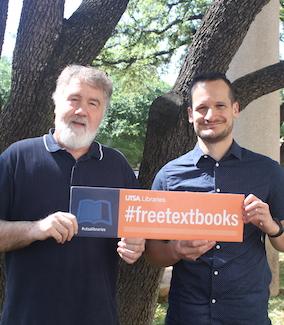
Course Awards
2017
The ANT 2033 team is using a mix of free and library materials, including readings from Nature Education Knowledge Project, a collection of easy-to-read articles authored by researchers and The History of Our Tribe: Hominini, an open textbook available through OPEN SUNY, and may use content from Explorations: An Open Invitation to Biological Anthropology, an open textbook developed with support from the Society for Anthropology in the Community. Both open textbooks are licensed under a Creative Commons 4.0 Attribution License, giving the ANT 2033 team the freedom to copy, redistribute, remix, transform, or add to the content and tailor for their curricular needs.
More from the team:
“Our vision for open educational resources in Biological Anthropology would ideally meet three main goals: 1) low or no cost commitment for the students, 2) ability to update resources to include the newest discoveries in the field without necessarily waiting for an expensive new edition of a textbook and 3) customizable units/modules that would allow different instructors to select and rearrange sections based on their own syllabus.
The ability to update resources continuously is a critical feature in biological anthropology. Although this can be done through original articles, the presence of a more structured textbook that could be updated and integrated periodically would represent a better resource for the students. In addition to it, biological anthropology is a vast field, and different instructors tend to teach the subject in different ways. Ideally, the online/open educational resource would allow combining different modules to satisfy each instructor’s need. Most textbooks in Biological Anthropology are organized in a very standardized way and for students it can be confusing to jump from one chapter to the other.
ANT 2033 will regularly be taught by graduate students and adjunct faculty. By providing free content we can facilitate text-free teaching by these instructors. Ideally, we can have a “digital handbook” that will supply an evolving list of resources organized by subject to adjunct faculty. In addition to this, the quest for having open educational resources in biological anthropology is very high. The Nature Educational project addressed this need with a series of well-written articles on multiple topics. Many colleagues across the country have shown the same interest in developing such open educational resources for introductory courses, and we believe that developing such resources at UTSA would be pivotal for other faculty peers. Outside biological anthropology, we believe that by developing an effective free textbook (or a series of open resources) for ANT-2033 would also convince other faculty peers in our department to move in the same directions. Other courses, such as Introduction to Anthropology (ANT-1013), Introduction to Cultural Anthropology (ANT-2053) and Introduction to Archeology (ANT-2043) could strongly benefit from the development and the availability of OER in their sub-fields.”